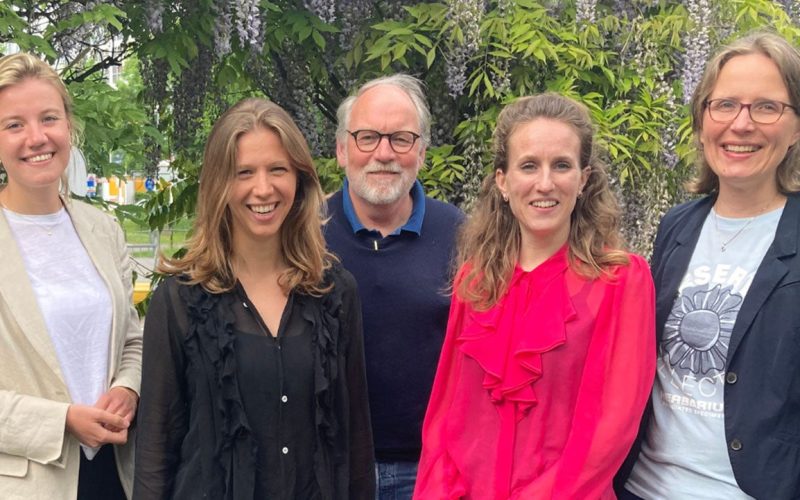Albertien van Eerde, clinical geneticist and associate professor translational nephrogenetics, Gisela Slaats, assistant professor experimental nephrology, and Marc Lilien, paediatric nephrologist at UMC Utrecht, played a crucial role in securing Utrecht’s participation in TheRaCil consortium. This will take research into kidney failure in young people to a higher level. The researchers involved from 15 institutes from six countries are working closely together as they integrate their expertise and the various large European ciliopathy biobanks and databases.
The aim is to improve diagnosis and prognosis in young patients with renal ciliopathies and work towards clinical trials of new drugs. Renal ciliopathies are a major cause of end-stage renal failure in children. End-stage renal disease is the last stage of chronic kidney disease (CKD). UMC Utrecht is an important partner, as its centre of expertise for hereditary and congenital kidney and urinary tract disorders is a place to go for patients with congenital urinary tract defects or hereditary kidney disease or a suspicion thereof. They come for diagnostics, multidisciplinary treatment, hereditary advice and scientific research. This centre of expertise is affiliated with ERKNet, the European Reference Network for Rare Kidney Diseases.
The researchers involved integrate the various major European ciliopathy databases and biobanks, which provide access to a huge amount of clinical, biochemical and genetic information from a wide variety of renal ciliopathy patients worldwide. Albertien van Eerde: “Examples of renal ciliopathies are ARPKD, nephronoftise and Bardet-Biedl syndrome. The collaboration between doctors, geneticists, biotechnology companies and experts in complementary research areas such as cilia biology, bioinformatics, and artificial intelligence (AI). We are doing this special project together with patient advocacy groups.”
The Institut Imagine (Paris) is coordinator of TheRaCil funded by Horizon Europe, the European Union’s framework programme for research and innovation. “We want to pave the way for the translation of preclinical findings into clinical studies,” explains coordinator, Sophie Saunier. By assembling a large cohort of pediatric renal ciliopathy patients and using AI-based tools, we are going to identify patients eligible for specific treatments, advancing the concept of precision medicine.”
